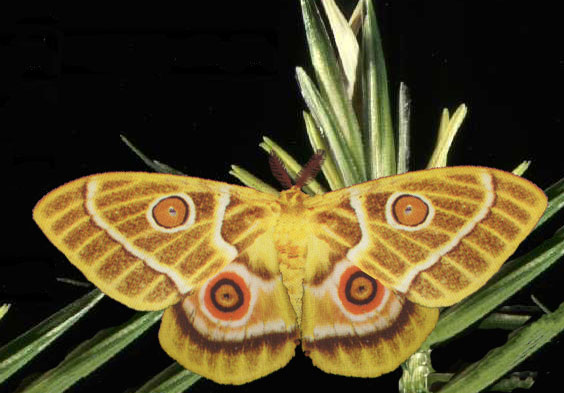Bunaeopsis princeps
bewe-nay-OPS-ihsmmPRIN-keps
(Le Cerf, 1918)
(Nudaurelia)

Bunaeopsis princeps composited and transformed by Bill Oehlke
This site has been created by
Bill Oehlke at oehlkew@islandtelecom.com
Comments, suggestions and/or additional information are welcomed by Bill.
TAXONOMY:Superfamily: Bombycoidea, Latreille, 1802 |
Wind Beneath My Wings |